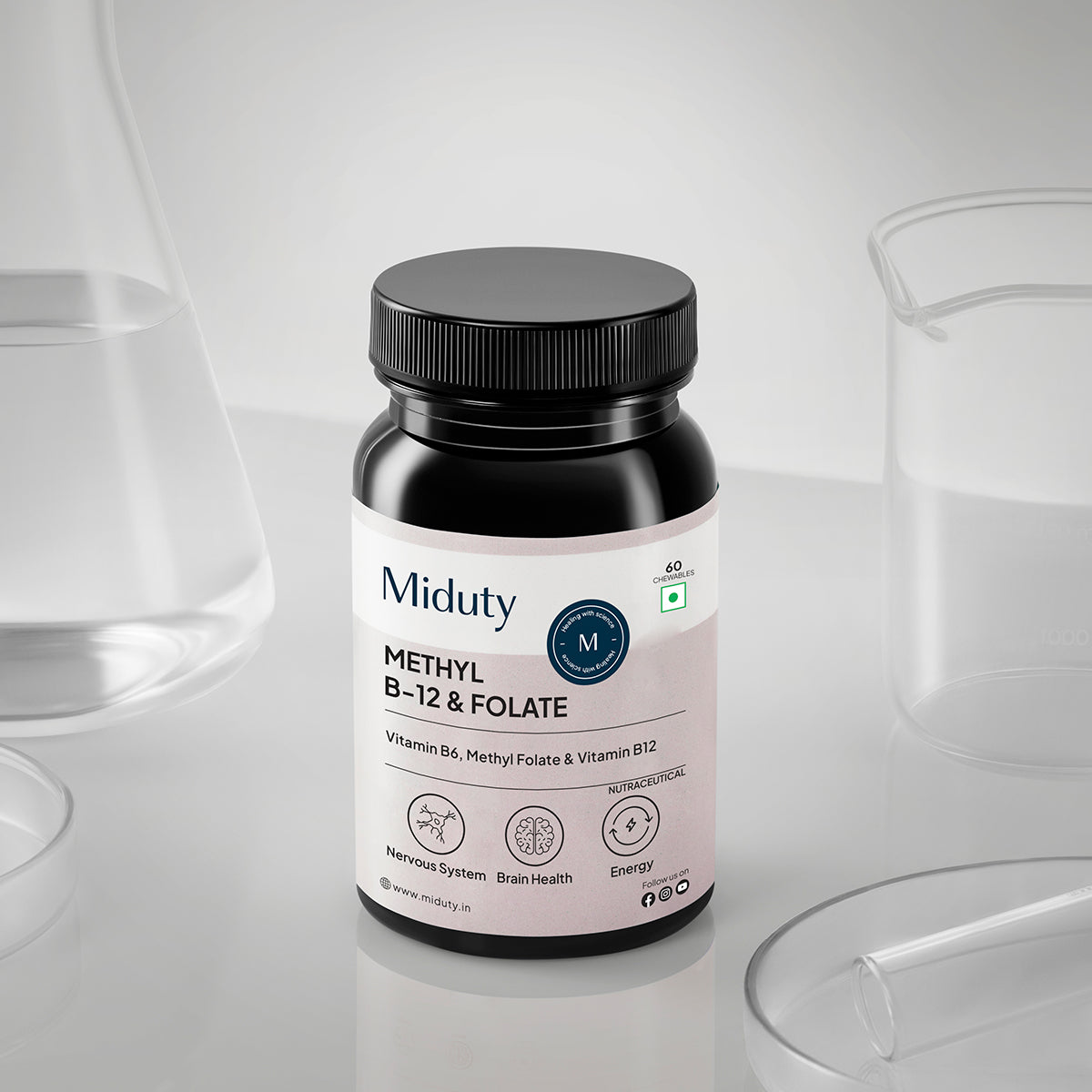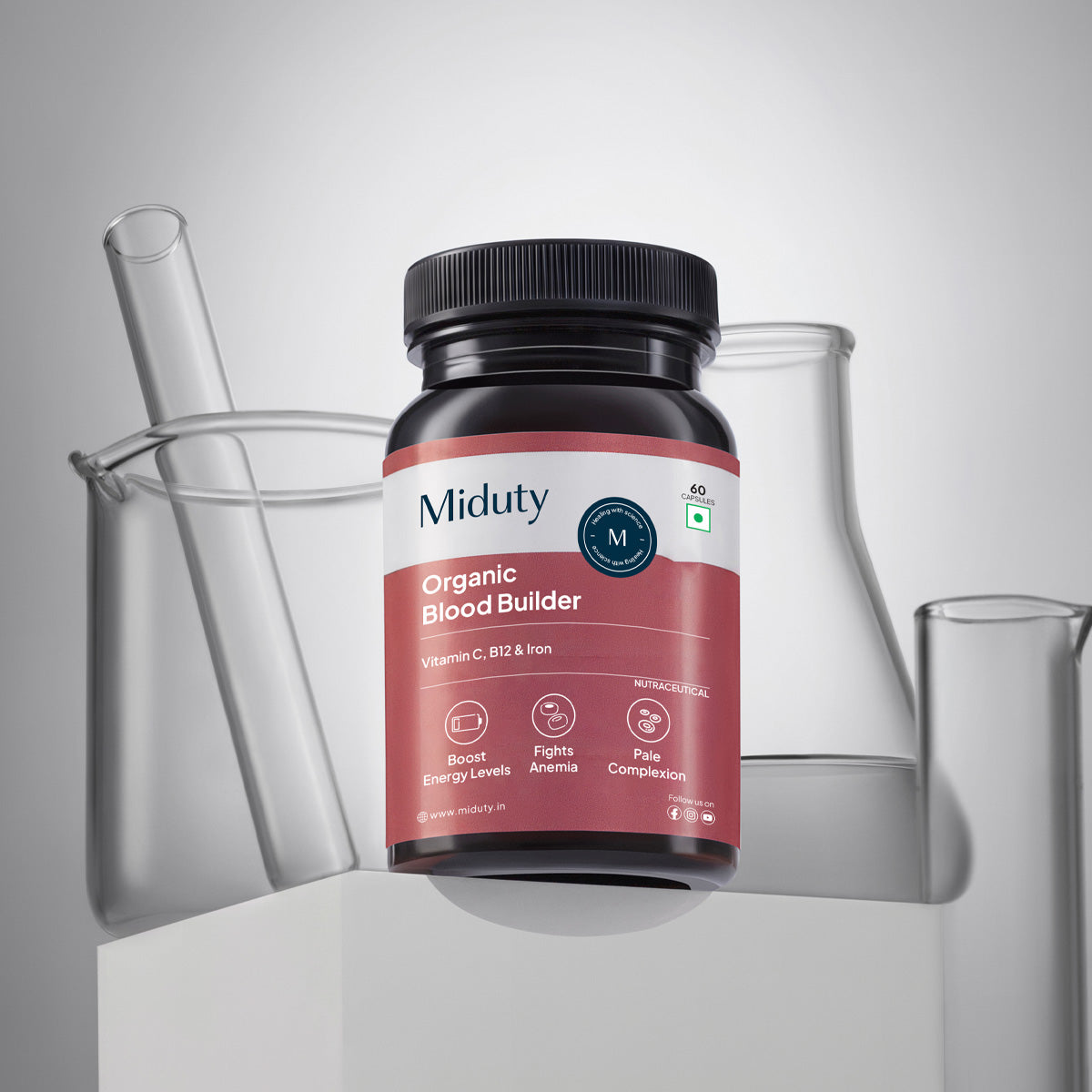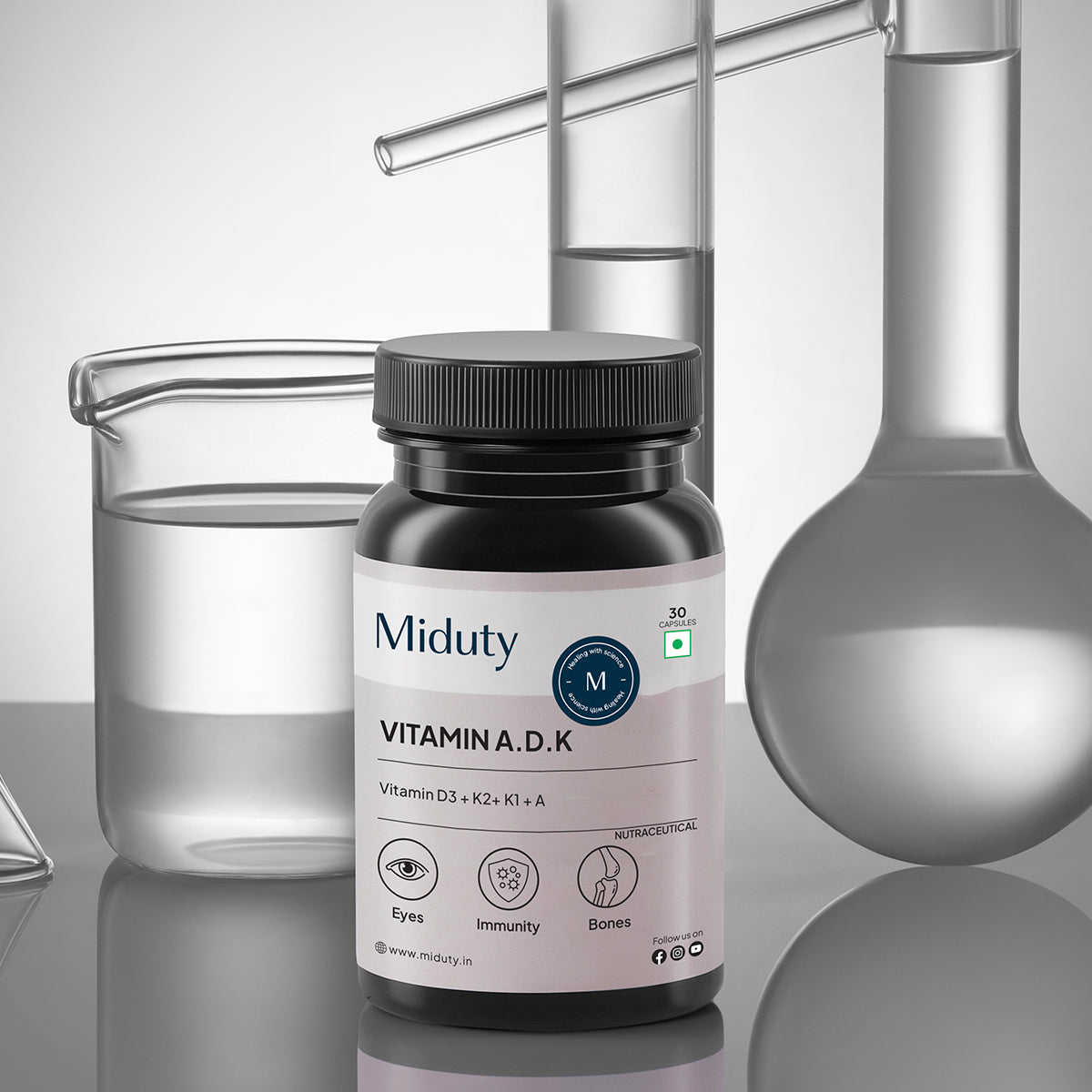
All You Need to Know about B12 Symptoms & Benefits
Do you generally feel tired and low on energy throughout the day that you find it very difficult to complete your daily life activities? You may also be thinking why small things make you angry and frustrated. While you may be unaware of it, it could be due to a Vitamin B12 deficiency in your body.
In India, deficiency in vitamin B12 is commonly present. Monitoring vitamin B12 levels in the body is particularly important for vegetarians, as there is a chance that they'll develop a deficiency that can cause anemia, infertility, and digestive tract cancer.
The majority of individuals in India are vegetarians, and Vitamin B12 is an important vitamin obtained in abundance from a non-vegetarian diet. More than 47% of the Indian population is vitamin B12 deficient, and vegetarian diets may be the primary cause. [1]
Moreover, traditional eating habits don't always protect against deficiencies. No matter how much vitamin B12 is present in animal products, if there are issues with the gastrointestinal tract, especially acidity issues, your B12 is never getting absorbed as acidity unables the absorption of vitamin B12. Therefore, it is important to work on our acidity first.
And do you know? Vitamin B12 is a nutrient that is water soluble. Water soluble vitamins are removed from our body through urine after being stored in our body. Hence, it is essential that you should consume it on a daily basis.
In order to tackle the Vitamin B12 deficiency, most people opt for B12 injections as recommended by the doctors. Injections can be very painful and cause redness and swelling. Instead of taking injections, you can consider taking B12 in chewable form as it directly gets absorbed in your body and doesn’t have to go through various processes to get absorbed.
Therefore, if you have a B12 deficiency and are looking for possible treatments, don't worry. In this article, I will discuss what are the signs of B12 deficiency, why the body requires it, and what are its benefits. You will learn how to prevent B12 deficiency in vegetarians by taking the best vitamin B12 supplements.
What is the Role of Vitamin B12
You must be thinking that you’re already consuming a nutrient rich diet, then what is the need of Vitamin B12?
As mentioned above, most of us Indians are deficient in Vitamin B12 and the production of DNA, amino acids which are the building blocks of life, essential fats, red blood cell creation, the working and development of the central nervous system (brain and spinal cord), and other processes depend on vitamin B12.
If it is not present in our body in an adequate amount, it can seriously impact the body causing various illnesses.
What Are the Signs of B12 Deficiency?
The symptoms of this condition are not dangerous at first, but they worsen progressively as the deficiency increases. The signs of B12 deficiency are as follows:
- Tingling in Hands and Feet
This symptom is caused by a long-term vitamin B12 shortage. Vitamin B12 is necessary for the synthesis of myelin, which protects your nerves and is essential for the proper functioning of your nervous system.
- Pale Skin
Vitamin B12 deficiency causes a decrease in the production of Red Blood Cells. Your reduced RBC production causes your skin to seem darker or jaundice-like when there are fewer RBCs in circulation.
- Acidity and Digestive Issues
Diarrhea, nausea, constipation, bloating, gas, and other gastrointestinal symptoms can all be caused by a B12 deficiency.
- Mouth Ulcers
Lack of vitamin B12 may result in inflammation of the tongue. In addition to this, it could make your tongue itch and burn.
- Low Energy & Dizziness

Due to the abnormal RBCs that are formed as a result of a vitamin B12 deficiency, the body is unable to transport oxygen to your brain, the person experiences low energy, weakness, dizziness, and light-headedness.
- Blurry Vision

Although it is a rare sign, the optic nerve or your eye nerve can be damaged as a result of nervous system disability, which can blur one's eyesight.
Benefits of Vitamin B12
Vitamin B12 can help your body in a variety of ways, including increasing energy, improving memory, and preventing heart disease.
Here are 6 scientifically proven health benefits of vitamin B12.
1. Energy Boost
Low Energy is one of the early signs of B12 deficiency. [2] Vitamin B12 helps in the production of energy in your body. It supports the maintenance of high energy levels by transforming carbohydrates into usable glucose that your body can absorb.
2. Boosts Red Blood Cells

Vitamin B12 plays a very important role in the production of red blood cells. Low vitamin B12 levels can reduce red blood cell formation. It can also stop them from properly developing. In the absence of vitamin B12, healthy red blood cells become bigger and roundish. Anemia occurs when your body does not produce enough red blood cells to carry oxygen to your major organs. This can result in signs such as fatigue and weakness.
3. Prevents Birth Defects
A sufficient amount of vitamin B12 is required for a healthy pregnancy. The brain and nervous system of a fetus require adequate B12 levels from the mother.
A lack of vitamin B12 in the early stages of pregnancy may significantly raise the risk of birth defects such as neural tube defects which is responsible for the early development of the brain and spine. [3] Furthermore, a lack of vitamin B12 in the mother may play a part in premature birth or miscarriage.
4. Improves Mood
This vitamin is necessary for the production and metabolism of serotonin, a chemical that regulates mood. [4] As a result, vitamin B12 deficiency may result in decreased serotonin production, resulting in a depressed mood.
5. Healthy Nervous System

Vitamin B12 helps in protecting the nervous system which consists of our brain, spinal cord, and nerves, by maintaining the health of our nerve cells, so that important signals can be sent throughout the body.
Secondly, it helps to form the cell's myelin sheath, which is the material that covers and protects the nerve. Hence, ignoring a vitamin B12 deficiency can lead to permanent nerve damage.
6. Supports Healthy Hair, Skin, and Nails
In reality, insufficient vitamin B12 levels can cause pigmentation on the face, nail discoloration, hair changes, and inflammation in the mouth.
Because of the significance of vitamin B12 in cell development, it becomes important to maintain the vitamin B12 levels to ensure healthy hair, skin, and nails.
Conclusion
Traditional eating habits don't always protect against deficiencies. No matter how much vitamin B12 is present in animal products, if there are issues with the gastrointestinal tract, it won't be completely absorbed. So, you have to work on your acidity by taking Betaine HCL and Pepsin.
A B12 Supplement is beneficial along with your regular diet. To cure the symptoms of vitamin B12 deficiency. I created my own vitamin b12 has the most active and stabilized form of Vitamin B9 which is methyl folate. Additionally, it is in chewable form which is easy to absorb by the body as it doesn’t need to go through various processes to get absorbed in the body. A combination of B12, B6 and B9 acts as an energy powerhouse and is rarely available in the form of supplements.
Vitamin B12 is a nutrient that is water soluble. Water soluble vitamins are removed from our body through urine after being stored in our body. Hence, it is essential that you should consume it on a daily basis.
References













